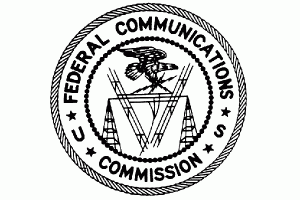 The way in which the Federal Communications Commission pursues its mission of ensuring that residents of every part of the United States have access to telecommunications services at reasonable prices is being re-evaluated to give greater importance to newer technologies. The method of funding “universal service” is also very likely to change, perhaps lowering the amount that the average telecom consumer pays in the form of costs passed through to them by telecom carriers.
The way in which the Federal Communications Commission pursues its mission of ensuring that residents of every part of the United States have access to telecommunications services at reasonable prices is being re-evaluated to give greater importance to newer technologies. The method of funding “universal service” is also very likely to change, perhaps lowering the amount that the average telecom consumer pays in the form of costs passed through to them by telecom carriers.
Most telecom consultants think changes to the FCC’s universal service priorities, which were formally proposed in October, are long overdue. Over the last decade especially, advances in information technology in general and the convergence of IT and telecom in particular have made the FCC’s original narrow goal of fostering wireline telephone service to all Americans less relevant.
In a move that had been eagerly anticipated for months, the FCC voted unanimously on Oct. 27 to adopt a plan that would essentially redefine universal service and reform the way that efforts to establish and maintain universal service are funded. The centerpiece of the plan is the creation of the Connect America Fund, which would emphasize bringing broadband and mobile services to geographic areas that might otherwise go unserved by these technologies.
Until now, the FCC had focused much of its efforts to foster universal access to telecommunications on traditional wireline voice telephone service. Through the Universal Service Fund (USF), established by the Telecommunications Act of 1996, subsidies are given to telecom carriers in order to lower the price tag of basic telephone service for low-income users and for people living in “high-cost” areas. High-cost areas are rural, low-population or insular areas that have few revenue-generating customers in relation to the infrastructure expenditures that must be made to serve them. Without subsidies, phone service in these areas would be prohibitively expensive for many residents, if it existed at all. Subsidies enable carriers to profitably serve these areas while charging rates that are comparable to those in urban areas.
Although the FCC states that it still wants to “preserve and advance the universal availability of voice service,” the Connect America Fund (CAF) will be oriented toward bringing broadband services to even “the most remote areas of the nation.” The FCC plans to effectively terminate the USF by 2018, completely replacing the USF program for high-cost areas with the Connect America Fund and making the CAF the main mechanism for achieving its new universal service goals.
The CAF will also be a vehicle for realizing the National Broadband Plan, which calls for broadband services to be made accessible to every American by 2020. The Plan was promulgated two years ago by the FCC as required by the American Recovery and Reinvestment Act passed in 2009. To be eligible to participate in the CAF, telecom carriers will be required to offer both voice and broadband services.
Funding for the CAF will follow a different model than the one established for the USF, but the details of the funding mechanism have to be worked out. Not surprisingly, exactly who pays how much to support universal broadband service, how the money is collected and how it is disbursed are likely to be contentious issues. Major changes to intercarrier compensation (ICC) – the fees that telecom carriers pay one another for handling each other’s traffic – will also be made in concert with the revamping of the universal service program. Telecom customers are ultimately the ones who pay universal service and ICC fees as part of their phone bills, and fortunately for them, one of the FCC’s stated goals is to reduce costs that are passed through to end-users.
Efficient telecom management for your organization depends on keeping up with constant changes in technology, the telecom industry and government regulation. Telanalysis is an experienced telecom billing consultant that’s been keeping abreast of changes in the world of telecom since 1985. Telanalysis can help you reduce your company’s telecom spending, starting with a phone bill audit that we perform for you on a contingency basis with no upfront payment. Call Telanalysis today for a free consultation at 866-300-6999.





